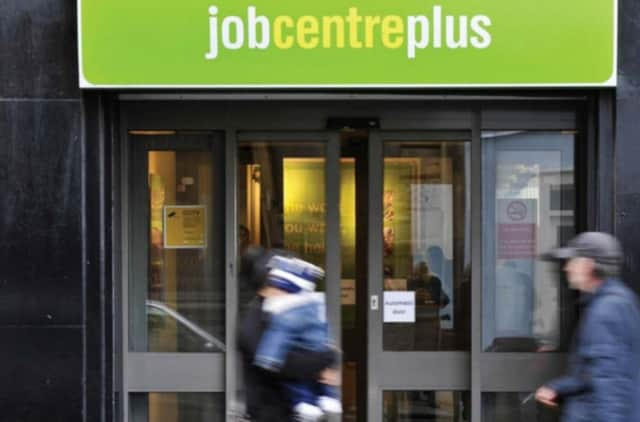Living wage and EU vote blamed for slump in job vacancies


Employment openings dropped by nine percent in April from March and were down 27 percent compared to the same period last year, a survey by job site Indeed revealed.
The Scottish Government said it was supporting job creation by investing in infrastructure as well supporting entrepreneurship.
Advertisement
Hide AdAdvertisement
Hide AdThe figures collated by Indeed revealed the slump in recruitment began in March and accelerated in April when the UK Government introduced a new compulsory higher minimum wage of £7.20 pounds an hour - up from 6.70 pounds for workers aged 25 and above.
Research by KPMG in November last year revealed 80 per cent of Scots workers were already earning more than the voluntary living wage - set at £8.25 an hour - compared with 77 per cent across the UK.
Around 441,000 people in Scotland are still below the living wage, with East Renfrewshire the worst performing area at 32 per cent earning less than £8.25 followed by Angus and Clackmannanshire at 31 per cent.
The introduction of a new voluntary living wage was welcomed by the Scottish Government and anti-poverty campaigners.
But business leaders have expressed concern about mounting costs at a time of economic instability.
“The combination of business uncertainty about the potential impact of a Brexit, the slowdown of the economy amid global economic headwinds and a sudden increase in the wage bill for many firms has triggered a sharp cooling in the jobs market,” Mariano Mamertino, an economist at Indeed, said.
“While thousands of the UK’s lowest paid workers received a welcome boost to their April pay packet, the benefits have inevitably been concentrated in regions with higher numbers of poorly paid jobs – like North East England, Northern Ireland and Wales.
“Yet even by marginally eroding employers’ appetite to hire more staff, the policy may have unwittingly made life somewhat harder for some jobseekers. Job vacancies in 12 of the 13 sectors tracked by Indeed fell in April, accelerating a trend that began in March following the announcement of the EU referendum.
Advertisement
Hide AdAdvertisement
Hide AdDeputy First Minister John Swinney said: “The Scottish Government will support job creation by opposing austerity, investing almost £20 billion in national infrastructure, boosting entrepreneurship, supporting businesses to innovate and export and extending the small business bonus scheme.
“To support young people into work, we will increase Modern Apprenticeships to 30,000 a year by 2020 and provide a Jobs Grant to help young people with the costs of getting back into work.”
